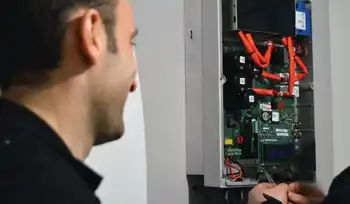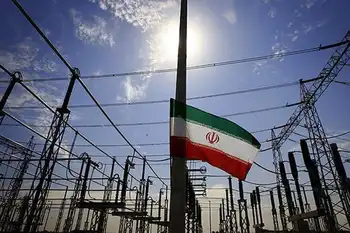U.S. DOE Co-Funds Solar Cell Manufacture
Washington, DC -- - Secretary of Energy Spencer Abraham announced today that the DOE's National Renewable Energy Laboratory (NREL) has awarded a subcontract to Energy Conversion Devices, Inc. (ECD) to develop new solar cell manufacturing technology. The contract provides matching funds for a research and development program aimed at lowering the manufacturing cost of solar cells. NREL will fund about $3 million of the approximately $6 million three-year subcontract, with ECD providing the balance of the funds.
"Solar power promises to be a significant source of electricity, and this project supports President Bush's National Energy Plan which calls for an increase in research and development of nature's power -- renewable energy resources," Secretary Abraham said.
ECD, headquartered in Rochester Hills, Mich., is a pioneer in hydrogen-based energy solutions, including solar, rechargeable nickel metal hydride batteries, hydrogen storage systems and regenerative fuel cells. ECD subsidiary United Solar Systems, which operates the world's only advanced production machine for manufacturing thin-film amorphous silicon alloy solar cells and related products, will participate in the project.
"This subcontract is the latest in our long-standing, mutually successful relationship with NREL and DOE," said Stanford R. Ovshinsky, president and CEO of ECD and chairman and CEO of United Solar Systems Corp. "The program is another important step forward in one of our company's key missions, which is to put more power in the hands of customers through energy-efficient technology. While our patented solar products have existed for many years and are currently powering homes and business today, research and development programs like this will make solar power more widespread and expand its potential as a major source of our energy needs."
The research project will concentrate on developing online diagnostic systems for monitoring, closed loop control, and eventual continuous online optimization of a 30-megawatt photovoltaic manufacturing line. Manufacturing lines built with the new technology will have more rapid start-up and commissioning, higher yields and lower production costs.
The project is part of DOE's Photovoltaics Manufacturing Initiative, known as PVMat. PVMat's goal is to improve manufacturing processes and products, while reducing manufacturing costs and developing technologies that support manufacturing on a much larger scale.
Related News

A Snapshot of the US Market for Smart Solar Inverters
WASHINGTON - Advanced solar inverters could be one of the biggest distributed energy resource communications and control points out there someday. With California now requiring at least early-stage “smart” capabilities from all new solar projects — and a standards road map for next-stage efforts like real-time communications and active controls — this future now has a template.
There are still a lot of unanswered questions about how smart inverters will be used.
That was the consensus at Intersolar this week, where experts discussed the latest developments on the U.S. smart solar inverter front. After years of pilot projects, multi-stakeholder technical working groups,…




